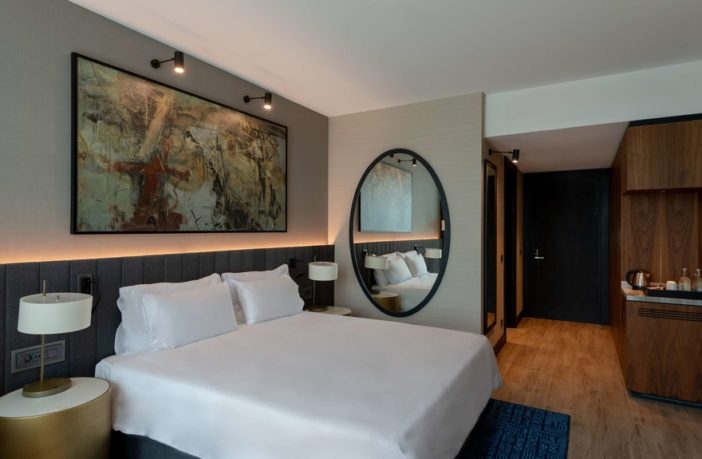Hotel Management
by Jena Tesse Fox
The Radisson Blu Hotel & Conference Center Niamey in Niger opened in June. Photo credit: Radisson Hotel
The hospitality sector in French-speaking Africa is attracting “a broad spectrum” of high net-worth individuals, private equity, institutional, French and Anglophone African Investors due to a range of factors, according to regional hospitality analysts and advisor, Clemence Derycke of Horwath HTL, who noted these factors include the lack of branded supply, stable CFA currency and strong demand drivers.
The market, Derycyke said, is very active with global and regional brands “targeting hotel openings in the majority of the region’s major cities.” For example, Proparco, a development/financial institution partly owned by the French Development Agency and private shareholders, allocated a €12 million loan last year to finance the construction of the Azalaï Hotel Dakar in Senegal and has financially supported Teyliom’s Mangalis Hotel Group in the past. “At the same time, Grit Real Income Group has just acquired the Club Med Cap Skirring property in Senegal,” said Derycke.
Branded Development
Accor, Derycyke noted, has been very active in Francophone Africa, with a “robust” pipeline for the region. Last month, Accor announced plans to open three Novotel hotels to the Democratic Republic of Congo. The group partnered with Compagnie Hôtelière et Immobilière du Congo, owned by DRC conglomerates, to add 337 guestrooms to sub-Saharan Africa’s largest country.
“With Africa tipped as the next global market and DRC one of the continent’s fastest-expanding economies with an affluent middle class, the time is right to introduce our flagship, midscale lifestyle brand in three major growth markets,” said Mark Willis, CEO, Accor Middle East and Africa.
Earlier this year, Hilton signed a flagship Hilton Hotels & Resorts property for the DRC and opened the Hilton Tanger Al Houara Golf Resort and Spa in Morocco.
Radisson’s Strategy
Radisson Hotel Group, meanwhile, has been “very dynamic” with opening flagship hotels in most capital cities across Francophone Africa, Derycyke said. “They are now looking for new development in the resort or the midscale segments.”

Image credit: Wikipedia
According to Erwan Garnier, Radisson Hotel Group development director for Francophone and Lusophone Africa, the region is a primary focus for the group with the international brand aiming to add significantly to its portfolio over the next five years. “We currently have 16 hotels and over 3,000 rooms in operation and a further 13 hotels and almost 2,000 rooms under development in Francophone Africa,” he said, adding that being fluent in the language and local market dynamics has helped the company’s growth in the market. “We have identified seven pro-active cities in which we are focusing our efforts for scaled expansion. The two primary focus cities are Abidjan and Dakar, followed by Douala, Yaoundé, Kinshasa, Mauritius and Seychelles,” Garnier said.
To fuel its growth strategy, the group has created a specialized French-speaking development team that can align to the group’s Africa development strategy of focusing on capital cities, financial hubs and resort destinations.
The group already has opened two new hotels in Algeria and Niger, employing a development strategy that is focused on the business segment for hotels, resorts, serviced apartments and mixed-use developments. The Radisson Blu Hotel & Conference Center Niamey in Niger, for example, opened in June as the first luxury hotel to be built in the country and, according to Garnier, was the first luxury hotel to go from design to completion in 11 months. The project was developed by Istanbul-based Summa Group and required an overall investment of €38 million.
With two more hotels set to open in 2019, including a second hotel in Morocco, the market is very attractive for real estate investors, particularly “high net-worth individual investors,” many of whom are the biggest sources of current investment, said Garnier.







